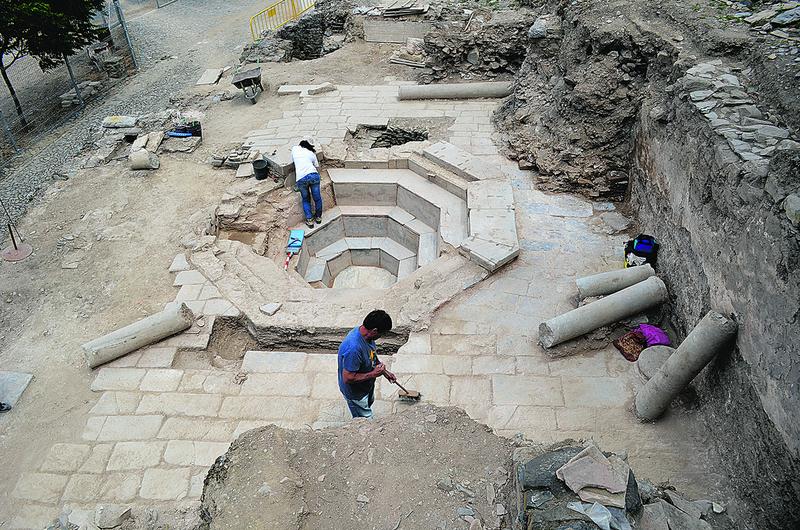 Yesterday the Archaeological Site of Mértola received the prize from the Pontifical Academies of the Vatican, this year dedicated to the first centuries of Christianity, for the work carried out in this area.
Yesterday the Archaeological Site of Mértola received the prize from the Pontifical Academies of the Vatican, this year dedicated to the first centuries of Christianity, for the work carried out in this area.
Archaeologist Cláudio Torres, founder and director of Campo Arqueológico de Mértola, told the ECCLESIA Agency that this recognition “is essential” and “an extra motivation” for scholars in the sector.
In a message sent to those taking part in the meeting, the Pope wanted to “encourage and support” those involved in the “historical-archaeological and martyr research”, the object of this edition of the award.
“I am pleased to present the Pontifical Academies Prize, equally, to the Portuguese association Campo Arqueológico de Mértola for the archaeological campaigns conducted in recent years and for the extraordinary results obtained”, writes Francisco.
The Mértola Archaeological Field (CAM) was born around 40 years ago and researchers “are looking for finds from a dark period” in Portuguese history, said Cláudio Torres.
In that place, there are “lots of data on the Islamic civilization” and, essentially, what caused it, but the “curious” side is that, instead of finding “Arab” elements, they find “Christian” components.
Instead of discovering “horses and camels that invaded the Iberian Peninsula”, the investigators found “well-rooted Christian communities” that, at a certain moment, “convert to Islam”, the archaeologist underlined to the ECCLESIA Agency.
“Something completely different from what is said” in Portuguese historiography, but “archaeology speaks more truth” than the writings.
In this field, “an enormous quantity and variety of baptisteries and architectural structures” that mark the history of the XNUMXth to XNUMXth centuries have already been found, noted the director of CAM.
These archaeological data “were innovative” for the history of this period and, currently, researchers are discovering “a small church from the XNUMXth century that was under the mosque and above a Roman temple”, announced Cláudio Torres.
In addition to “a large Catholic community”, there existed in Mértola (current territory of the Diocese of Beja) a “great Monophysite community of worship that was at war with Byzantium and Rome”.
It is this world that the archeologists of this Field are “finding and disclosing” and that university scholars from around the world “are recognizing in the CAM's work”.
The director thanked the “Institutes of Archaeological Research of Rome for the recognition”, given the work done and to be carried out in this area.
With this award given by the pontifical academies, Cláudio Torres believes that CAM will “receive more interns and scholars in the field” to carry out joint studies.
The ceremony was organized on Tuesday by the Pontifical Council for Culture and the Pontifical Academies coordinated by the same body of the Roman Curia, chaired by Cardinal Gianfranco Ravasi.
The other winner of this year's award was Italian researcher Matteo Braconi, for his “excellent doctoral thesis” on the mosaic in the apse of the Basilica of Santa Pudencia in Rome.
The Pope also awarded a medal to Professor Almudena Alba López, from the University of Salamanca, for her publication on “Political theology and anti-Aryan polemics”.


















Comments